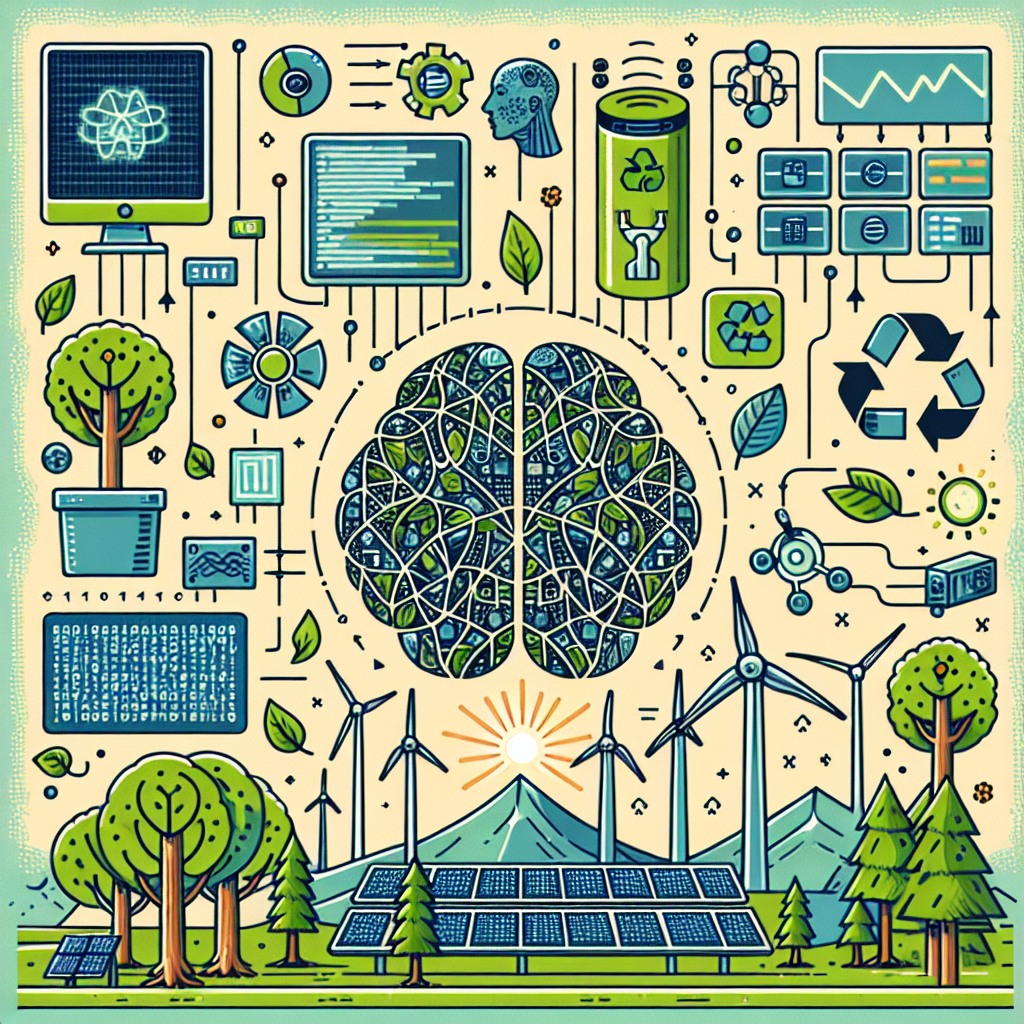In recent years, the global focus on sustainability has increased significantly as the world faces pressing environmental challenges such as climate change, resource depletion, and pollution. Businesses, governments, and individuals are all looking for ways to reduce their impact on the planet and ensure a more sustainable future. Artificial Intelligence (AI) solutions have emerged as a powerful tool in driving sustainability efforts across various sectors.
AI technologies have the potential to revolutionize how we approach sustainability by optimizing resource use, reducing waste, and enabling more efficient and eco-friendly operations. From energy management to waste reduction, AI solutions are being implemented in a wide range of applications to help organizations achieve their sustainability goals.
One of the key areas where AI is driving sustainability efforts is in energy management. By using AI algorithms to analyze energy consumption patterns, businesses can identify areas where energy is being wasted and implement strategies to reduce usage. For example, AI-powered HVAC systems can adjust temperature settings based on occupancy levels and weather conditions, leading to significant energy savings.
AI is also being used in the transportation sector to reduce emissions and improve fuel efficiency. Autonomous vehicles, powered by AI algorithms, can optimize routes, reduce idle time, and minimize fuel consumption. In addition, AI-enabled traffic management systems can help reduce congestion and emissions by optimizing traffic flow and reducing stop-and-go traffic.
In the agriculture industry, AI solutions are being used to improve crop yields and reduce the environmental impact of farming practices. AI-powered drones can monitor crop health, identify pests and diseases, and optimize irrigation and fertilizer usage. By using AI to make data-driven decisions, farmers can reduce the use of harmful chemicals and water while increasing productivity.
In the manufacturing sector, AI is being used to optimize production processes and reduce waste. Predictive maintenance systems powered by AI algorithms can identify potential equipment failures before they occur, reducing downtime and minimizing resource waste. AI-powered quality control systems can also identify defects in real-time, reducing the number of defective products and minimizing waste.
AI solutions are also being used in waste management to optimize recycling processes and reduce landfill waste. AI-powered robots can sort through recyclable materials faster and more accurately than humans, increasing recycling rates and reducing contamination. In addition, AI algorithms can analyze waste streams to identify opportunities for waste reduction and recycling.
Overall, AI solutions are playing a crucial role in driving sustainability efforts across various sectors by optimizing resource use, reducing waste, and enabling more efficient and eco-friendly operations. By harnessing the power of AI, organizations can make smarter decisions, reduce their environmental impact, and contribute to a more sustainable future.
FAQs:
Q: How can AI help businesses reduce their energy consumption?
A: AI technologies can analyze energy consumption patterns, identify areas where energy is being wasted, and implement strategies to reduce usage. For example, AI-powered HVAC systems can adjust temperature settings based on occupancy levels and weather conditions, leading to significant energy savings.
Q: How can AI improve transportation sustainability?
A: AI-powered autonomous vehicles can optimize routes, reduce idle time, and minimize fuel consumption, leading to lower emissions and improved fuel efficiency. AI-enabled traffic management systems can also reduce congestion and emissions by optimizing traffic flow.
Q: How can AI help farmers reduce the environmental impact of agriculture?
A: AI-powered drones can monitor crop health, identify pests and diseases, and optimize irrigation and fertilizer usage, leading to higher crop yields and reduced environmental impact. By making data-driven decisions, farmers can reduce the use of harmful chemicals and water.
Q: How can AI optimize production processes in the manufacturing sector?
A: AI-powered predictive maintenance systems can identify potential equipment failures before they occur, reducing downtime and minimizing resource waste. AI-powered quality control systems can also identify defects in real-time, reducing the number of defective products and minimizing waste.
Q: How can AI improve waste management processes?
A: AI-powered robots can sort through recyclable materials faster and more accurately than humans, increasing recycling rates and reducing contamination. AI algorithms can also analyze waste streams to identify opportunities for waste reduction and recycling.

